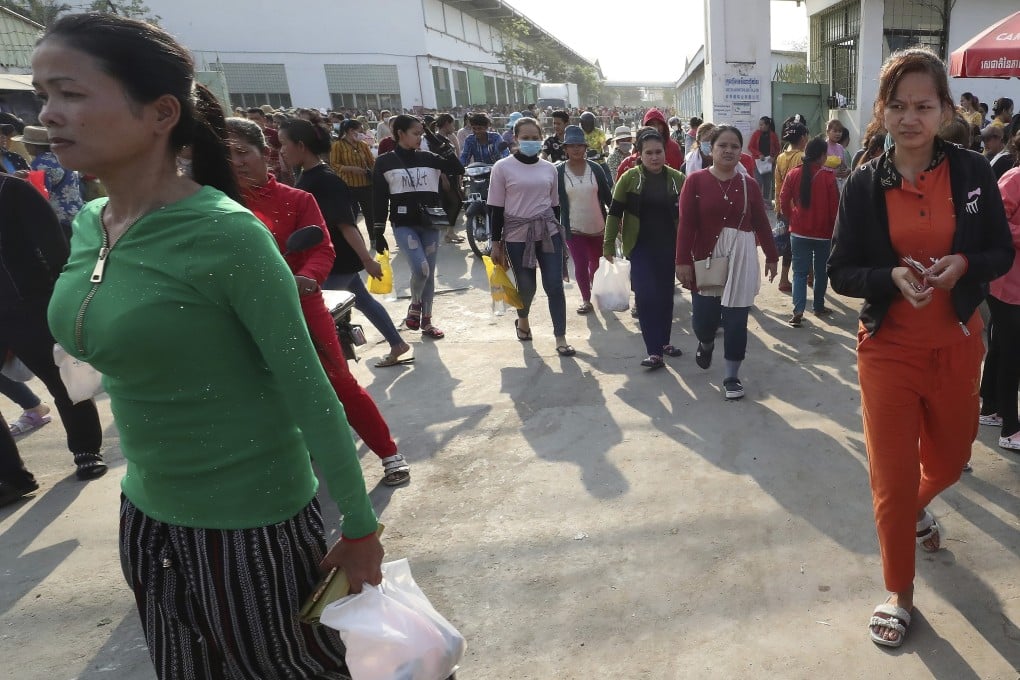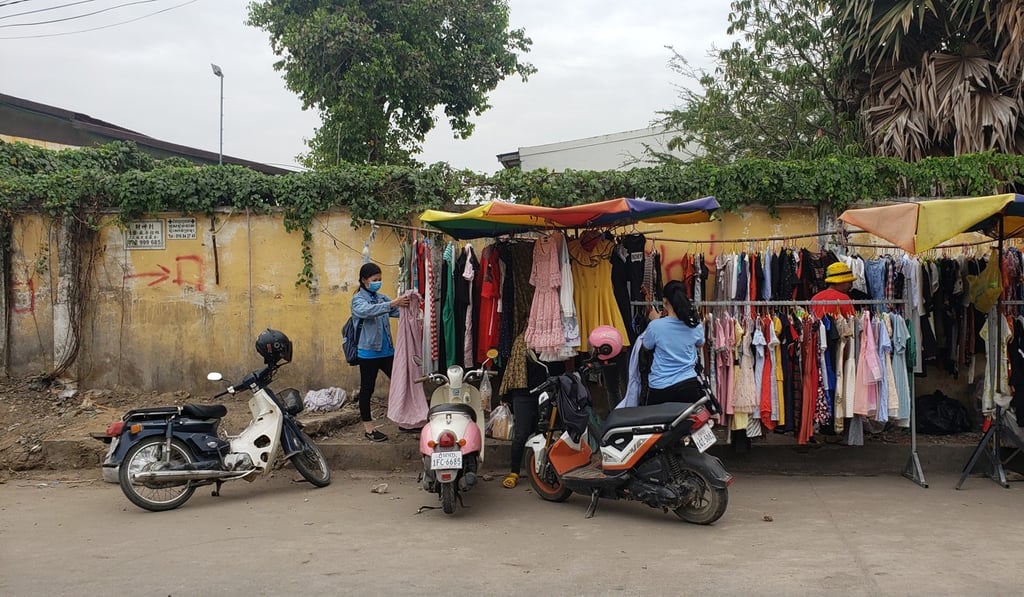Cambodia’s struggling garment workers to feel the pinch as Europe cuts EBA trade benefits
- European Commission partially withdraws country’s ‘Everything But Arms’ access to EU over government’s handling of human and labour rights
- Cambodian exporters will have to pay full tariffs on more than 30 products, including sugar cane, travel goods, and some types of garments and footwear

The European Commission voted on Wednesday to partially withdraw Cambodia’s “Everything But Arms” tariff-free trade access to the European Union, after the country failed to improve its tense political and social atmosphere over a year-long investigation period.
Exporters will have to pay full tariffs on more than 30 products, including sugar cane, travel goods, and some types of garments and footwear. The brunt of higher duties will be borne by Cambodia’s garment and shoemaking industries, which are already struggling to maintain competitiveness with other garment-driven economies.
The Commission noted the selected goods would constitute about 20 per cent of the country’s export value to the EU in 2018, valued at US$1.09 billion, although the exact impact of its decision depends on the details of specific product trade routes.
The European Commission launched withdrawal procedures last year over Cambodia’s “severe and systematic” violations of human and labour rights. The European Parliament and Council could overturn this decision before the August enforcement deadline if the bodies object.

Cambodia’s Foreign Affairs Ministry issued a statement late on Wednesday calling the EBA withdrawal “unjust” and “politically driven”. One of the issues involved in the decision was a ban on an opposition party accused by the authorities of attempting to overthrow the government.